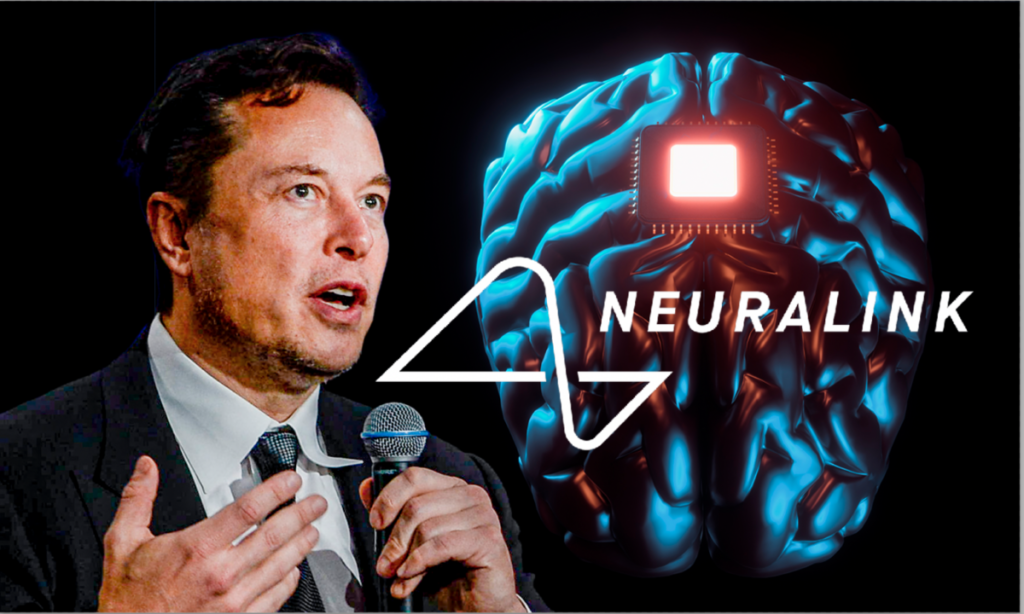In an announcement at the VivaTech event in Paris, billionaire entrepreneur, Elon Musk shared his optimism for Neuralink, his brain-chip startup, as it prepares to embark on its first human trial later this year.
During a webcast monitored by Reuters, Musk revealed that Neuralink plans to implant its innovative technology in a tetraplegic or paraplegic patient, marking a significant milestone in the company’s journey.
While details about the number of patients and duration of the trial remain undisclosed, Musk stated, “It’s looking like the first case will be later this year.”
Neuralink recently achieved a significant breakthrough when it obtained clearance from the US Food and Drug Administration for its first-in-human clinical trial.
This regulatory approval represents a critical step forward for the startup, which has faced scrutiny over its handling of animal experiments from US authorities.
Although the FDA acknowledged that Neuralink could proceed with using its brain implant and surgical robot for trials, specific details were not provided.
The path to commercial use clearance for Neuralink, assuming its safety in humans is demonstrated, is anticipated to take several years, possibly even a decade, as experts have cautioned.
Furthermore, Neuralink faces competition from other neurotech companies that have already successfully implanted their devices in human subjects.
It’s worth noting that Musk has encountered delays in the past when it comes to Neuralink’s timelines.
On multiple occasions since 2019, he has expressed expectations of commencing human trials, which have not yet come to fruition.
According to previous reports by Reuters, Neuralink, founded in 2016, initially sought FDA permission in early 2022 but faced rejection due to numerous safety concerns.
These concerns revolved around issues such as the lithium battery of the device, the potential migration of the implant’s wires within the brain, and the challenge of extracting the device safely without causing damage to brain tissue.
Additionally, Neuralink has come under federal scrutiny following revelations about its animal experiments.
Last year, employees disclosed that the company had rushed and mishandled surgeries on monkeys, pigs, and sheep, leading to more animal deaths than necessary.
These actions were allegedly driven by Musk’s pressure to obtain FDA approval. The animal experiments were intended to generate data supporting the company’s application for human trials.
One notable incident in 2021 involved the implantation of incorrectly sized devices in 25 out of 60 pigs, resulting in the euthanization of all the affected animals.
Employees stated that this error could have been avoided with better preparation.
In response to concerns raised about potential financial conflicts within Neuralink’s animal board, US lawmakers have called for regulators to investigate whether these conflicts contributed to rushed and flawed experiments.
The Department of Transportation is conducting a separate investigation into allegations that Neuralink transported dangerous pathogens on chips extracted from monkey brains without adequate containment measures.
An ongoing inquiry is underway, according to an agency spokesperson.
Furthermore, the US Department of Agriculture’s Office of Inspector General has been investigating Neuralink for possible violations of animal welfare regulations.
The probe focuses on the USDA’s oversight of Neuralink’s activities. At the time of writing, there has been no immediate response from the agency regarding a request for comment.
Despite the challenges and investigations, Neuralink’s valuation has surged in recent months. While it was valued at approximately $2 billion in a private fundraising round two years ago, recent privately executed stock trades suggest the company is now worth around $5 billion.
This valuation boost has benefited Neuralink employees who hold stock in the company, with its value rising by approximately 150% in just two years, as reported by Reuters.

